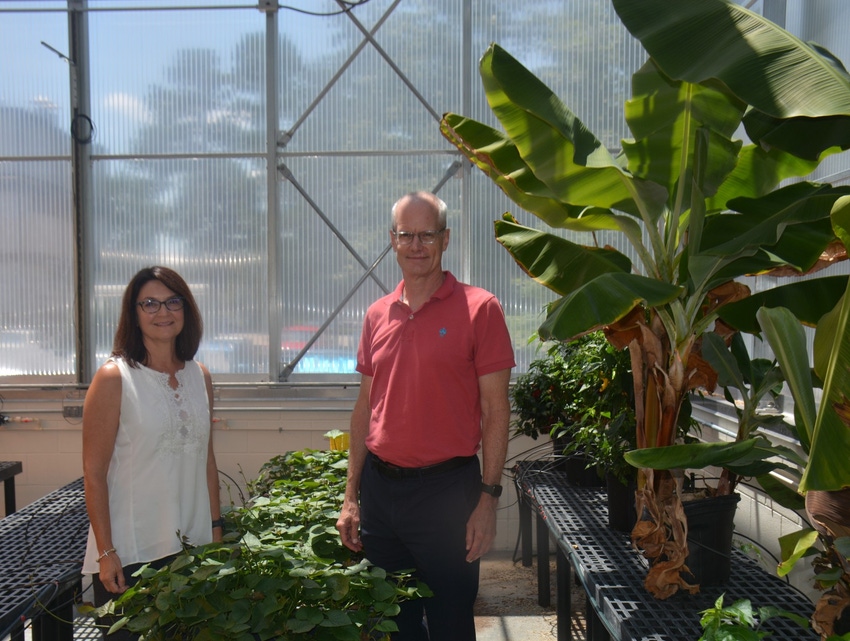
Just as the chemical era of crop protection began in the 20th Century at the end of World War II in the mid-1940s, many see the 21st Century as the biological era of crop protection.
Biological insecticides, herbicides and fungicides are still in their infancy, but many companies are banking on the technology to be the driving force of crop protection in the decades to come.
Agbiome, a privately held ag biotechnology company based in Research Triangle Park, N.C., is recognized as a leader in the burgeoning biologicals market.
The company was founded in late 2012 by a group led Scott Uknes and Eric Ward, well-known innovators in the ag biotechnology field. Uknes and Ward are co-CEOs of AgBiome. Prior to forming AgBiome, Uknes and Ward founded Cropsolution, an ag biotech company in Research Triangle Park. Uknes also was a co-founder of Paradigm Genetics, while Ward is a former co-president of ag biotech at Novartis in Research Triangle Park.
The company’s first product, a biological fungicide called Howler, was launched in 2019. Another fungicide, Theia, received EPA registration in May and is awaiting state regulation. A third fungicide, Esendo, should receive EPA registration in 2023. All three fungicides are biologicals, derived from microbes.
In an interview with Farm Progress from AgBiome’s headquarters in Research Triangle Park, N.C., Ward said AgBiome’s goal is to market a complete portfolio of biological insecticides, fungicides, nematicides and herbicides available over the next decade.
Ward said biologicals show great promise because farmers need a better way to protect crops. He noted that synthetics really aren’t being discovered anymore and resistance continues to be an issue. He points to a giant microbial universe that is pretty much untapped and noted that all the products AgBiome is working on now are developed from microbes or come from the microbe itself.
“We are just scratching the surface. Our collection is about 100,000 proprietary strains now, but that’s out of one trillion species of bacteria around the planet so there is a lot more out there to find. One thing we are doing is learning how to better zero in on the ones that have the highest activity, and we’ve done a lot of that over the last several years,” Ward explains.
Ward points out that biologicals have been available to farmers for some time, but in the past, many of the earlier products just didn’t work. He said AgBiome won’t bring a product to market unless it’s proven to work. Right now, the company is focusing on high-value specialty crops, but in the future, the company plans to target row crops as well.
“Part of our job is to make sure our products work as well as chemicals do. Our job is to help shift the industry so people actually understand that, yes, you can have a naturally occurring microbe crop protectant that works as well as a synthetic chemical does. We’re getting there. We need to make sure our products work before we commit the resources to developing a product,” Ward said
Toni Bucci, AgBiome’s chief operating officer, said row-crop growers have been slower to adopt biological-based technologies, while specialty crop producers have been much more willing to try biologicals, in part because of demand by consumers.
“The biologicals market in the U.S. and globally is growing by double percentages and that growth needs companies like AgBiome to continue to discover and successfully launch products to the market to fulfill that need. We know growers want them. To be able to fulfill 15% per annum growth, there needs to be products for them to buy and use,” Bucci said.
About the Author(s)
You May Also Like






